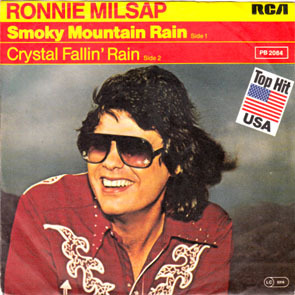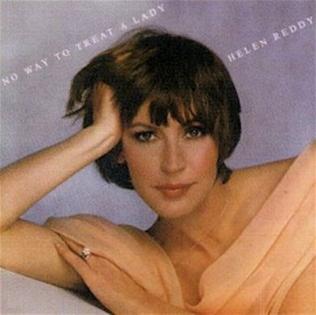
"The Night They Drove Old Dixie Down" is a song written by Robbie Robertson and originally recorded by the Canadian-American roots rock group the Band in 1969 and released on their eponymous second album. Levon Helm provided the lead vocals. The song is a first-person narrative relating the economic and social distress experienced by the protagonist, a poor white Southerner, during the last year of the American Civil War, when George Stoneman was raiding southwest Virginia. The song appeared at number 245 on Rolling Stone magazine's list of the 500 greatest songs of all time.

"Thank God I'm a Country Boy", also known as "Country Boy", is a song written by John Martin Sommers and recorded by American singer/songwriter John Denver. The song was originally included on Denver's 1974 album Back Home Again. A version recorded live on August 26, 1974, at the Universal Amphitheatre in Los Angeles was included on his 1975 album An Evening with John Denver. The live version was released as a single and went to No. 1 on both the Billboard magazine Hot Country Singles and Billboard Hot 100 charts. The song topped both charts for one week each, first the country chart, and the Hot 100 chart a week later. Thank God I'm a Country Boy also became the name of a variety special show hosted by Denver in 1977.

"Delta Dawn" is a song written by musician Larry Collins and country songwriter Alex Harvey. The first notable recording of the song was in 1971 by American singer and actress Bette Midler for her debut album. However it is best known as a 1972 top ten country hit for Tanya Tucker and a 1973 US number one hit for Helen Reddy. Though the song is attributed to Collins and Harvey, the melody of the chorus is very similar to the Christian hymn Amazing Grace.

Philip James Bailey is an American R&B, soul, gospel and funk singer, songwriter and percussionist, best known as an early member and one of the two lead singers of the band Earth, Wind & Fire. Noted for his four-octave vocal range and distinctive falsetto register, Bailey has won seven Grammy Awards. He was inducted into the Rock and Roll Hall of Fame and the Vocal Group Hall of Fame as a member of Earth, Wind & Fire. Bailey was also inducted into the Songwriters Hall of Fame for his work with the band.

"Down by the River" is a song composed by Neil Young. It was first released on his 1969 album with Crazy Horse, Everybody Knows This Is Nowhere. Young explained the context of the story in the liner notes of his 1977 anthology album Decade, stating that he wrote "Down by the River," "Cinnamon Girl" and "Cowgirl in the Sand" while delirious in bed in Topanga Canyon with a 103 °F (39 °C) fever.

From Every Stage is a double live album recorded by Joan Baez on tour in the summer of 1975. The first half of the album was acoustic, with Baez accompanying herself on her guitar, while the second half features electric backup. Baez' recording of "Blowin' in the Wind" from this album was later included in the Forrest Gump soundtrack album. The song "Natalya" was dedicated to Russian poet and human rights activist Natalya Gorbanevskaya,

"The Night the Lights Went Out in Georgia" is a Southern Gothic murder ballad, written in 1972 by songwriter Bobby Russell and first recorded by his then wife, singer, comedian, and actress Vicki Lawrence. Lawrence's version, from her 1973 album of the same name, went to number one on the US Billboard Hot 100 main chart after its release. Of several cover versions, the one recorded by Reba McEntire for her 1991 album For My Broken Heart peaked at number 12 on the Hot Country Songs chart.
David Allen Loggins is an American singer, songwriter, and musician.

"Sunshine on My Shoulders" is a song recorded and co-written by American singer-songwriter John Denver. It was originally released as an album track on 1971's Poems, Prayers & Promises and later, as a single in 1973. It went to number one on the Billboard Hot 100 chart in the U.S. in early 1974.

"Just Like a Woman" is a song by American singer-songwriter Bob Dylan first released on his seventh studio album, Blonde on Blonde on June 20, 1966. It was written by Dylan and produced by Bob Johnston. A shorter edit was released as a single in the United States during August 1966 and peaked at number 33 on the Billboard Hot 100. The song has been criticized for supposed sexism or misogyny in its lyrics, and has received a mixed critical reaction; some critics have suggested that the song was inspired by Edie Sedgwick, while other consider that it refers to Dylan's relationship with fellow folk singer Joan Baez.

"Footloose" is a song co-written and recorded by American singer-songwriter Kenny Loggins. It was released in January 1984 as the first of two singles by Loggins from the 1984 film of the same name. The song spent three weeks at number one, March 31—April 14, 1984, on the US Billboard Hot 100, becoming Loggins' only chart-topper, and was the first of two number-one hits from the film. Billboard ranked it at the No. 4 song for 1984.

"Jolene" is a song written and recorded by American country music artist Dolly Parton. It was produced by Bob Ferguson and recorded at RCA Studio B in Nashville, Tennessee on May 22, 1973. It was released on October 15, 1973, by RCA Victor, as the first single and title track from her album of the same name.

"Smoky Mountain Rain" is a song written by Kye Fleming and Dennis Morgan, and recorded by American country music singer Ronnie Milsap. It was released in September 1980 as the first and only single from his Greatest Hits compilation album. The single became one of his best-known songs.

"Your Mama Don't Dance" is a hit 1972 song by the rock duo Loggins and Messina. Released on their self-titled album Loggins and Messina, it reached number four on the Billboard pop chart and number 19 on the Billboard Easy Listening Chart as a single in early 1973.
"She Is His Only Need" is a song written by Dave Loggins, and performed by American country music artist Wynonna. It was Wynonna's first solo single, after spending nine years alongside her mother, Naomi Judd, as The Judds. It was released in January 1992 as the first single from Wynonna's self-titled debut album. The song was her first Number One hit on the Billboard Hot Country Singles & Tracks charts.
"Danny's Song" is a song written by American singer-songwriter Kenny Loggins, as a gift for his brother Danny for the birth of his son, Colin. It first appeared on an album by Gator Creek and a year later on the album Sittin' In, the debut album by Loggins and Messina. The song is well remembered for both the Loggins and Messina original, as well as for Anne Murray's 1972 top-ten-charting cover.

"Ain't No Way to Treat a Lady" is a 1974 written and first recorded by American singer-songwriter Harriet Schock. It was covered by various other artists, and saw its greatest success when it was covered by Helen Reddy, whose 1975 rendition became a top 10 hit.
Singers and Songwriters was a 19-volume album series issued by Time-Life in the US, during the early 2000s, spotlighting songs from the singer-songwriter era of the 1970s. There was an identically-named 29 volume series available in the UK and Europe, with different track listings and different, but similar artwork. Songs on the series included music written and performed by an artist, and artists who covered a well-known songwriter's material; as such, a large majority of the music was stylistically similar to what was heard on soft rock and (sometimes) contemporary hit radio stations during the 1970s and early 1980s.

The Seekers is the seventh studio album by Australian group the Seekers. The album was released in May 1975. Louisa Wisseling provided the vocals. It was the first The Seekers' album not to feature the vocals of Judith Durham. The lead single "Sparrow Song" was released in May 1975, peaking at number 7 on the Kent Music Report. A second single "Reunion" was released in November 1975 and peaked at number 83.
"If I Had My Wish Tonight" is a song written by Randy Goodrum and Dave Loggins originally released in 1979 by Dave Loggins on his self-titled album. American singer-songwriter David Lasley covered the song on his Missin' Twenty Grand album, releasing it as the first single. The song debuted on March 13, 1982, and reached a peak position of 36 on the Billboard Hot 100 on May 1, 1982.















